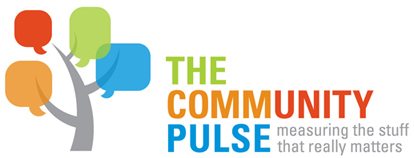The Community Pulse Project (CPP) is the City of Port Phillipʼs (CoPP) project for collecting data on changes the community considers important to
measure. CPP was set up in 2001 and, after 10 years in operation, the City of Port Phillip established a process to evaluate the project. This evaluation
looks back at 10 years in the development and innovation of the CPP, and looks forward at the strategic issues and options the project encounters
moving into the future. The evaluation was conducted between June 2011 and December 2011. Drawing data from 23 interviews, three in-depth large-group consultations with stakeholders, and extensive archival material, this report provides the results of a comprehensive evaluation of the project, and an analysis of its emerging strategic options.
The Community Pulse Project was set up in 2001 to allow the Port Phillip community to measure what matters to them. Its establishment was, in part, driven by a belief that it is important to understand how the community is changing in a variety of ways: environmentally, socially, economically and culturally. It addition it was guided by an understanding that community changes across these four areas are interconnected, and that a holistic view of change is required. These four areas are considered to be four pillars of sustainability, and have guided the development of CPP from its inception. Developed based on extensive community and expert consultation, the CPP created a series of indicators of change. CPP comprises 13 indicators with specific measures within each indicator to track community well-being. In its own words:
The Community Pulse helps our community to track long term trends on issues that they are passionate about and stimulate broader community awareness and action. The Community Pulse is particularly useful for things that may be changing at a pace that is difficult to detect, such as the gradual erosion of affordable housing.


